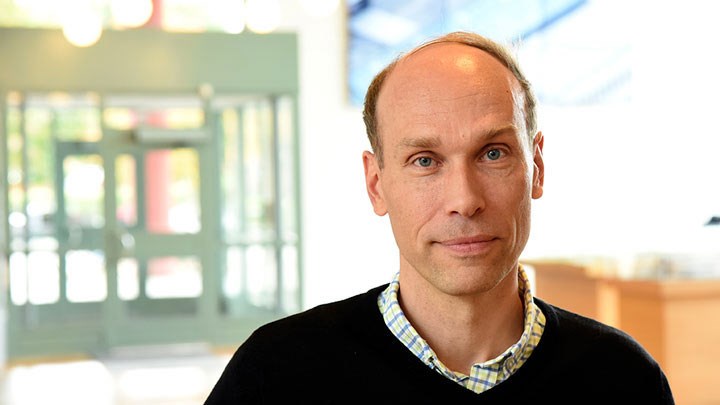Mats Eriksson

Mats Eriksson is professor of media and communication studies focused on strategic communication. In a world increasingly defined by crises and heightened threat perceptions, he researches risk, environmental, and crisis communication from organisational and citizen perspectives.
“Today, we’re getting accustomed to constant access to various digital services and the opportunity of individual choice. Technology also tends to raise our expectations on society and our municipality’s crisis management ability,” he says.
1970 Born in Linköping
2003 Obtained his PhD in media and communication studies at Örebro University with his thesis Från ingenjörskonst till informatörskonst: studier av PR- och riskkommunikation
2012 Docent in media and communication studies, Örebro University
2024 Professor of media and communication studies, Örebro University
In an ongoing research project, Mats Eriksson studies risk communication in Swedish municipalities. The project is funded by the Swedish Civil Contingencies Agency (MSB). Several of his current studies are based on us living an increasingly digital life and what consequences that has for people’s personal preparedness, as well as the individual’s expectations of society’s and the municipality’s crisis preparedness.
“A rich digital life that includes digital social networks can also empower that individual crisis management capabilities. This could mean quick access to information and important social support, provided that the digital channels function,” he explains.
The nuclear industry in focus
Mats Eriksson began his research career as a doctoral student at Örebro University’s Man-Technology-Environment research centre (MTM). His thesis focused on PR, strategic communication, and risk and environmental communication within the chemical, petroleum, and nuclear industries. His thesis – Från ingenjörskonst till informatörskonst: studier av PR- och riskkommunikation – is a historical portrayal and analysis of how the company Swedish Nuclear Fuel and Waste Management Company (SKB), developing from a closed technical and scientific research project to a company with a globally oriented perspective. The transformation led the company to prioritise its contacts with society and citizens through extensive communication.
As a doctoral student, PhD, and docent, Mats Eriksson has worked on – and led several projects – on strategic communication and risk and crisis communication. For three years, he was affiliated with DEMICOM at Mid Sweden University in Sweden and collaborated with international researchers, including those at the University of Maryland.
“A recurring theme for me is the significance of an increasingly digital media and communication landscape and how it affects media, authorities, and citizens in circumstances when it’s time to communicate on risks, crises, and security issues.”
Digitalisation increases the risk of cyber crises
Other projects have dealt with what the digital and mobile communication landscape means for the views and expectations of citizens regarding emergency calls to 112 and emergency assistance. An increasingly digitalised society also means new vulnerabilities, such as cyber-crisis risks. In his current studies, Mats Eriksson has shown the effect on citizens regarding various types of responsibility messages from authorities about who should handle and resolve complex situations when, for example, a payment system crashes.
In another ongoing research project funded by MSB, he studies “new” grounds citizens have for personal preparedness at home in the wake of the coronavirus pandemic and new security threats.
“There was both an increased interest in and the number of participants in home preparedness courses immediately following the start of Russia’s war against Ukraine,” says Mats Eriksson.
Studies of Swedish disasters
Mats Eriksson is active in several interdisciplinary environments and projects and often collaborates with authorities. A recurring theoretical and empirical focus in his research has been communicators’ and other service personnel’s work with risk and crisis communication.
He has also developed methods for work before, during, and after crises within the public sector, including risk communication for crisis preparedness. A series of case studies of official public communication in Sweden during various types of crises, from the Estonia disaster to the present day, have been included in the research. Today, Mats Eriksson leads the Centre for Crisis Communication (CCC) research environment at Örebro University.
